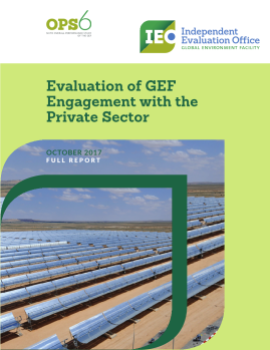Private sector engagement has become a critical dimension of the GEF’s work, recognizing that public sector efforts alone cannot achieve the scale of transformational change required to address global environmental challenges. Companies are motivated to engage with the GEF by regulatory requirements, investor expectations, disclosure standards, and alignment with international environmental agreements, as well as innovation opportunities and blended finance. The 2020 Private Sector Engagement Strategy (PSES) advanced a dual approach: market transformation through policies, standards, and value chain initiatives, and Non-Grant Instruments (NGIs) to mobilize capital, de-risk innovation, and pilot financial mechanisms. While grants remain essential for enabling conditions and early-stage innovation, NGIs have demonstrated catalytic leverage across climate, biodiversity, chemicals, and integrated programs. Yet effectiveness has been uneven, hampered by weak enabling conditions, short project cycles, and limited uptake in LDCs and SIDS. Going forward, the GEF must embed private sector engagement systematically, tailoring strategies to market contexts, strengthening risk-return alignment, and scaling pipelines of investment-ready projects to drive lasting transformation.


